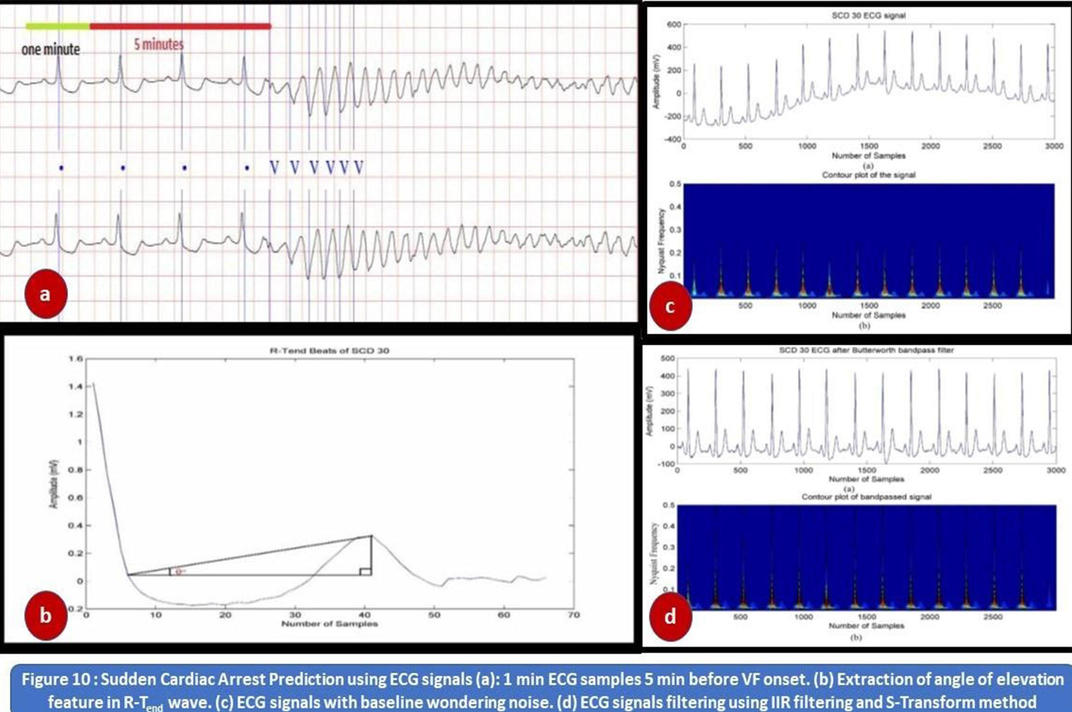

Professor M Murugappan

Summary: - Sudden cardiac arrest (SCA) appears primarily due to the sudden electrical disturbances in the heart, and when it stops pumping the blood to the rest of the body. This unpredictable electrical activity of the heart rapidly increases the heartbeats, which is further influenced by arrhythmias and conditions such as ventricular fibrillation (VF) and ventricular tachycardia (VT). In specific, if these disturbances are not treated within a short period, generally within a few minutes, it can lead to sudden cardiac death (SCD). Recent statistics reveal that a higher mortality rate due to cardiac arrest is reported in out-of-hospital than the subjects under medication. In specific, the survival rate of cardiac arrest (CA) patients out-of-hospital is less than 30%, and sudden changes in heart rate (HR) and QRS complex have been observed one hour before CA. We aim to analyze the morphological changes of Electrocardiogram (ECG), a few mins before the VF onset in SCD patients to devise a novel biomarker for SCA prediction. We are interested in investigating different types of morphological features such as QRS duration, R-Tend wave duration, ST wave, QRS complex, etc. from SCD and healthy controls (HC) to devise a novel marker to predict SCA. Our recent investigation on R-Tend morphological features gives 100% prediction in predicting the SCA, which is 5 min before VF onset. We also aim to investigate other characteristics features of ECG waveform, which are related to SCA, and to extend the duration of prediction to more than 30 min for saving millions of lives.